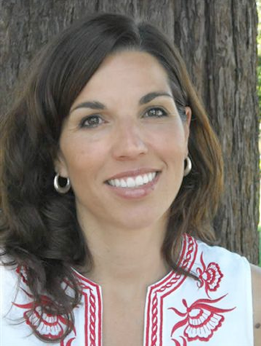Events

- This event has passed.
Rebecca Hester: "Those against whom society must be defended: Mexican migrants, swine flu, and bioterrorism"
April 8, 2014 @ 12:00 pm - 1:30 pm | Stevenson Fireside Lounge
 Since 9/11 and in the wake of the anthrax letters, there has been a concern about the “dual use” of biological knowledge and material which could variously be used for vaccine development or for the production of biological weapons of mass destruction. Population mobility and biological mutability have been at the center of this concern. The swine flu outbreak in 2009 in which the source of a potential pandemic was traced back to Oaxaca, Mexico led to outcries for a better and stronger cross-border public health infrastructure. This presentation assesses the implications of an increased focus on infectious disease as a biosecurity concern for Latin American origin migrants in Mexico and the United States. The talk shows how Latin American origin populations have particularly been targeted for biosurveillance and have discursively, if never materially, been linked to bioterrorism. The human rights consequences of this discursive link are potentially very grave for cross-border migrants as biological explanations are used to foment xenophobia and policies are implemented to “pre-empt” and “prevent” any and every lethal biological “contaminant” from entering the United States.
Since 9/11 and in the wake of the anthrax letters, there has been a concern about the “dual use” of biological knowledge and material which could variously be used for vaccine development or for the production of biological weapons of mass destruction. Population mobility and biological mutability have been at the center of this concern. The swine flu outbreak in 2009 in which the source of a potential pandemic was traced back to Oaxaca, Mexico led to outcries for a better and stronger cross-border public health infrastructure. This presentation assesses the implications of an increased focus on infectious disease as a biosecurity concern for Latin American origin migrants in Mexico and the United States. The talk shows how Latin American origin populations have particularly been targeted for biosurveillance and have discursively, if never materially, been linked to bioterrorism. The human rights consequences of this discursive link are potentially very grave for cross-border migrants as biological explanations are used to foment xenophobia and policies are implemented to “pre-empt” and “prevent” any and every lethal biological “contaminant” from entering the United States.
Rebecca J. Hester is assistant professor of social medicine in the Institute for the Medical Humanities at the University of Texas Medical Branch. She holds a Ph.D. in Politics with an emphasis in Latin American and Latino Studies from UCSC. Her research focuses on the politics of the body as they are manifested at and through the intersections of immigration, health, and security. She is co-author, with Ronnie Lipschutz, of “We are the Borg! Human Assimilation into Cellular Society,” pp. 366-407, in: M.G. Michael and Katina Michael (eds.), Uberveillance and the Social Implications of Microchip Implants: Emerging Technologies (Hershey, Penna.: IGI Global, 2014).
These talks are co-sponsored by CGIRS, College Eight, the Politics Department, the Institute for Humanities Research, the Institute of the Arts & Sciences, and the Science and Justice Research Center. The BIOS (Bodies Imag(in)ed to be Obstacles to Security) Research Cluster is a new project of the Center for Global, International and Regional Studies, focused on the surveillance, management, interrogation, discipline and intervention of human and other bodies in the digital age. If you are interested in joining the cluster, please contact Ronnie Lipschutz at rlipsch@ucsc.edu.
